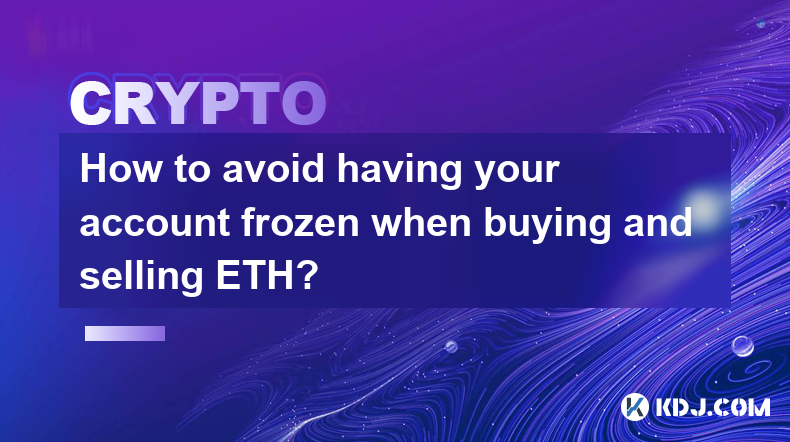-
 Bitcoin
Bitcoin $85,181.4576
0.55% -
 Ethereum
Ethereum $1,600.7372
0.98% -
 Tether USDt
Tether USDt $0.9999
0.01% -
 XRP
XRP $2.0883
0.92% -
 BNB
BNB $592.4828
0.74% -
 Solana
Solana $138.7084
2.67% -
 USDC
USDC $0.9999
0.00% -
 Dogecoin
Dogecoin $0.1590
2.50% -
 TRON
TRON $0.2418
-1.18% -
 Cardano
Cardano $0.6301
2.59% -
 UNUS SED LEO
UNUS SED LEO $9.3588
1.36% -
 Chainlink
Chainlink $12.8630
1.65% -
 Avalanche
Avalanche $19.5072
1.68% -
 Stellar
Stellar $0.2468
2.21% -
 Toncoin
Toncoin $2.9911
-0.01% -
 Shiba Inu
Shiba Inu $0.0...01220
2.08% -
 Hedera
Hedera $0.1663
0.29% -
 Sui
Sui $2.1506
1.41% -
 Bitcoin Cash
Bitcoin Cash $338.3770
2.53% -
 Hyperliquid
Hyperliquid $18.1017
6.61% -
 Polkadot
Polkadot $3.7270
1.24% -
 Litecoin
Litecoin $76.2040
0.93% -
 Dai
Dai $1.0000
0.02% -
 Bitget Token
Bitget Token $4.4577
2.21% -
 Ethena USDe
Ethena USDe $0.9992
0.02% -
 Pi
Pi $0.6468
6.09% -
 Monero
Monero $212.8810
-1.80% -
 Uniswap
Uniswap $5.2693
1.19% -
 Pepe
Pepe $0.0...07270
1.33% -
 OKB
OKB $50.7701
1.10%
How to avoid having your account frozen when buying and selling ETH?
To prevent Ethereum account freezes, comply with KYC/AML, trade consistently, secure your account with 2FA, and choose reputable exchanges.
Apr 17, 2025 at 12:42 pm

When dealing with Ethereum (ETH), one of the most common concerns for users is the risk of having their accounts frozen. This can happen due to various reasons such as suspicious activity, regulatory compliance issues, or even technical errors. Understanding how to prevent this from happening is crucial for maintaining a smooth and uninterrupted trading experience. This article will guide you through various strategies and precautions you can take to avoid having your account frozen when buying and selling ETH.
Understanding the Reasons for Account Freezes
Before diving into prevention strategies, it's important to understand why accounts might get frozen in the first place. Common reasons include suspicious trading patterns, non-compliance with KYC/AML regulations, and security concerns. Exchanges and platforms are required to monitor activities to prevent fraud and comply with legal standards. If your transactions appear unusual or if you fail to provide required documentation, your account may be flagged and subsequently frozen.
Complying with KYC/AML Regulations
Know Your Customer (KYC) and Anti-Money Laundering (AML) regulations are critical for preventing account freezes. Most reputable exchanges require you to complete KYC verification, which involves submitting personal identification documents. To ensure compliance and avoid account freezes:
- Complete the KYC process thoroughly: Make sure all your personal information is accurate and up-to-date. Incomplete or incorrect information can lead to account suspension.
- Keep your documents current: If your identification documents expire, update them promptly to avoid any interruptions in your trading activities.
- Be aware of transaction limits: Some platforms impose limits on the amount you can transact without further verification. Staying within these limits can prevent triggering a freeze.
Monitoring Your Trading Activity
Maintaining a normal trading pattern is essential to avoid raising red flags. Sudden spikes in trading volume or frequent large transactions can be perceived as suspicious. To keep your account in good standing:
- Trade consistently: Avoid sudden, large transactions that deviate significantly from your usual activity.
- Use multiple small transactions: If you need to move large sums, consider breaking them into smaller, less conspicuous transactions.
- Keep records: Maintain detailed records of your transactions, as these can be useful in case of any inquiries from the platform.
Securing Your Account
Security measures can also play a significant role in preventing account freezes. A compromised account can lead to unauthorized activities, which might result in a freeze. To secure your account:
- Use strong, unique passwords: Ensure that your password is complex and not used on other sites.
- Enable two-factor authentication (2FA): This adds an extra layer of security, making it harder for unauthorized users to access your account.
- Monitor for unauthorized access: Regularly check your account for any unusual activity and report it immediately to the platform.
Choosing the Right Exchange
Selecting a reputable and reliable exchange can significantly reduce the risk of account freezes. Different platforms have varying levels of security and compliance standards. To choose the right exchange:
- Research the platform's reputation: Look for reviews and feedback from other users to gauge the platform's reliability.
- Check for regulatory compliance: Ensure that the exchange adheres to local and international regulations.
- Evaluate customer support: A responsive and helpful customer support team can be invaluable if you encounter any issues.
Understanding Platform Policies
Familiarizing yourself with the policies and terms of service of the platform you are using is crucial. Each exchange has its own set of rules and guidelines that users must follow. To avoid account freezes due to policy violations:
- Read and understand the terms of service: Pay close attention to sections related to account freezes and suspension.
- Stay updated on policy changes: Platforms may update their policies, so it's important to keep informed of any changes that might affect your trading activities.
- Contact customer support if unsure: If you have any questions about specific policies, don't hesitate to reach out to the platform's support team.
Managing Withdrawals and Deposits
Proper management of withdrawals and deposits can also help prevent account freezes. Ensuring that these transactions are handled correctly can reduce the likelihood of triggering security measures. To manage these effectively:
- Verify recipient addresses: Always double-check the address before sending ETH to ensure it's correct and belongs to a trusted party.
- Be cautious with large withdrawals: Large withdrawals can trigger security protocols, so it's wise to inform the platform in advance if you plan to make a significant withdrawal.
- Use trusted payment methods: Stick to well-known and verified payment methods to avoid issues with deposits.
Frequently Asked Questions
Q: Can using a VPN affect my account status on an exchange?
A: Using a VPN can sometimes trigger security measures on exchanges, as it may appear that you are trying to mask your location. While not all platforms have strict policies against VPNs, it's advisable to check the specific rules of the exchange you are using. If VPNs are allowed, ensure you use a reputable service to avoid any issues.
Q: What should I do if my account gets frozen despite following all precautions?
A: If your account is frozen, the first step is to contact the exchange's customer support immediately. Provide them with any requested information and explain your situation clearly. Keep records of all communications and be patient, as resolving such issues can take time.
Q: Are there any specific times of the day when it's safer to trade ETH to avoid account freezes?
A: There are no specific times that are inherently safer for trading ETH. However, trading during peak hours when the platform's monitoring systems are less likely to flag normal activity might reduce the risk. Always adhere to the platform's guidelines and maintain consistent trading patterns.
Q: Can trading on decentralized exchanges (DEXs) reduce the risk of account freezes?
A: Trading on decentralized exchanges can reduce the risk of account freezes since DEXs typically do not require KYC/AML verification. However, they come with their own set of risks, such as smart contract vulnerabilities and less customer support. It's important to weigh these factors before choosing to trade on a DEX.
Disclaimer:info@kdj.com
The information provided is not trading advice. kdj.com does not assume any responsibility for any investments made based on the information provided in this article. Cryptocurrencies are highly volatile and it is highly recommended that you invest with caution after thorough research!
If you believe that the content used on this website infringes your copyright, please contact us immediately (info@kdj.com) and we will delete it promptly.
- SUI Stuck in No Man's Land as Bitcoin Dominance Rises
- 2025-04-19 16:20:13
- MoonPay CEO Calls on US Lawmakers to Leave a Path Open to State-Level Regulators When Passing Legislation on Stablecoins
- 2025-04-19 16:20:13
- XploraDEX's $XPL Token Presale Enters Final Phase as FOMO Reaches Boiling Point
- 2025-04-19 16:15:13
- Mjpru Result 2025: Mahatma Jyotiba Phule Rohilkhand University Declared the Last SEMESTER Exam Results
- 2025-04-19 16:15:13
- The DeFi Education Fund (DEF) Submitted a Letter to the SEC Proposing Five Core Principles for Creating a "Token Safe Harbor" Framework
- 2025-04-19 16:10:13
- King Charles III's Easter message from Durham Cathedral fails to honour the Christian essence of Holy Week
- 2025-04-19 16:10:13
Related knowledge

Will the Bitcoin payment platform affect the payment business of traditional banks?
Apr 19,2025 at 09:56am
The emergence of Bitcoin and other cryptocurrencies has sparked a significant debate about their impact on the traditional financial sector, particularly on the payment business of banks. The Bitcoin payment platform, with its decentralized nature and promise of lower transaction fees, poses both a challenge and an opportunity for traditional banks. Thi...

Which industries are most suitable for using Bitcoin payment platforms? Successful case sharing**
Apr 19,2025 at 04:01pm
Bitcoin, as a decentralized digital currency, has seen increasing adoption across various industries. The use of Bitcoin payment platforms offers several advantages, including lower transaction fees, faster processing times, and enhanced security. This article explores the industries most suitable for using Bitcoin payment platforms and shares successfu...

How to avoid address input errors when using Bitcoin payment platforms?
Apr 19,2025 at 02:15am
When using Bitcoin payment platforms, avoiding address input errors is crucial to ensure your transactions are secure and reach the intended recipient. Address input errors can lead to loss of funds, as Bitcoin transactions are irreversible. This article will guide you through various methods and best practices to prevent such mistakes. Understanding Bi...

What are the advantages of Bitcoin payment platforms in cross-border transactions?
Apr 19,2025 at 01:35pm
Bitcoin payment platforms have emerged as a revolutionary tool for cross-border transactions, offering numerous advantages that traditional banking systems struggle to match. In this article, we will explore the key benefits of using Bitcoin payment platforms for international payments, focusing on speed, cost, accessibility, security, and transparency....

Why are more and more merchants accepting Bitcoin payments?
Apr 19,2025 at 12:29pm
The increasing acceptance of Bitcoin as a payment method by merchants is a notable trend within the cryptocurrency circle. This shift is driven by several key factors that make Bitcoin an attractive option for businesses. Understanding these factors can provide insights into the growing acceptance of Bitcoin payments. Benefits of Lower Transaction FeesO...

How to avoid slippage in SOL transactions?
Apr 19,2025 at 12:15pm
Slippage in cryptocurrency transactions, particularly in Solana (SOL) transactions, refers to the difference between the expected price of a trade and the price at which the trade is actually executed. Slippage can occur due to various factors such as market volatility, liquidity, and the size of the transaction. For traders and investors dealing with S...

Will the Bitcoin payment platform affect the payment business of traditional banks?
Apr 19,2025 at 09:56am
The emergence of Bitcoin and other cryptocurrencies has sparked a significant debate about their impact on the traditional financial sector, particularly on the payment business of banks. The Bitcoin payment platform, with its decentralized nature and promise of lower transaction fees, poses both a challenge and an opportunity for traditional banks. Thi...

Which industries are most suitable for using Bitcoin payment platforms? Successful case sharing**
Apr 19,2025 at 04:01pm
Bitcoin, as a decentralized digital currency, has seen increasing adoption across various industries. The use of Bitcoin payment platforms offers several advantages, including lower transaction fees, faster processing times, and enhanced security. This article explores the industries most suitable for using Bitcoin payment platforms and shares successfu...

How to avoid address input errors when using Bitcoin payment platforms?
Apr 19,2025 at 02:15am
When using Bitcoin payment platforms, avoiding address input errors is crucial to ensure your transactions are secure and reach the intended recipient. Address input errors can lead to loss of funds, as Bitcoin transactions are irreversible. This article will guide you through various methods and best practices to prevent such mistakes. Understanding Bi...

What are the advantages of Bitcoin payment platforms in cross-border transactions?
Apr 19,2025 at 01:35pm
Bitcoin payment platforms have emerged as a revolutionary tool for cross-border transactions, offering numerous advantages that traditional banking systems struggle to match. In this article, we will explore the key benefits of using Bitcoin payment platforms for international payments, focusing on speed, cost, accessibility, security, and transparency....

Why are more and more merchants accepting Bitcoin payments?
Apr 19,2025 at 12:29pm
The increasing acceptance of Bitcoin as a payment method by merchants is a notable trend within the cryptocurrency circle. This shift is driven by several key factors that make Bitcoin an attractive option for businesses. Understanding these factors can provide insights into the growing acceptance of Bitcoin payments. Benefits of Lower Transaction FeesO...

How to avoid slippage in SOL transactions?
Apr 19,2025 at 12:15pm
Slippage in cryptocurrency transactions, particularly in Solana (SOL) transactions, refers to the difference between the expected price of a trade and the price at which the trade is actually executed. Slippage can occur due to various factors such as market volatility, liquidity, and the size of the transaction. For traders and investors dealing with S...
See all articles
























































































